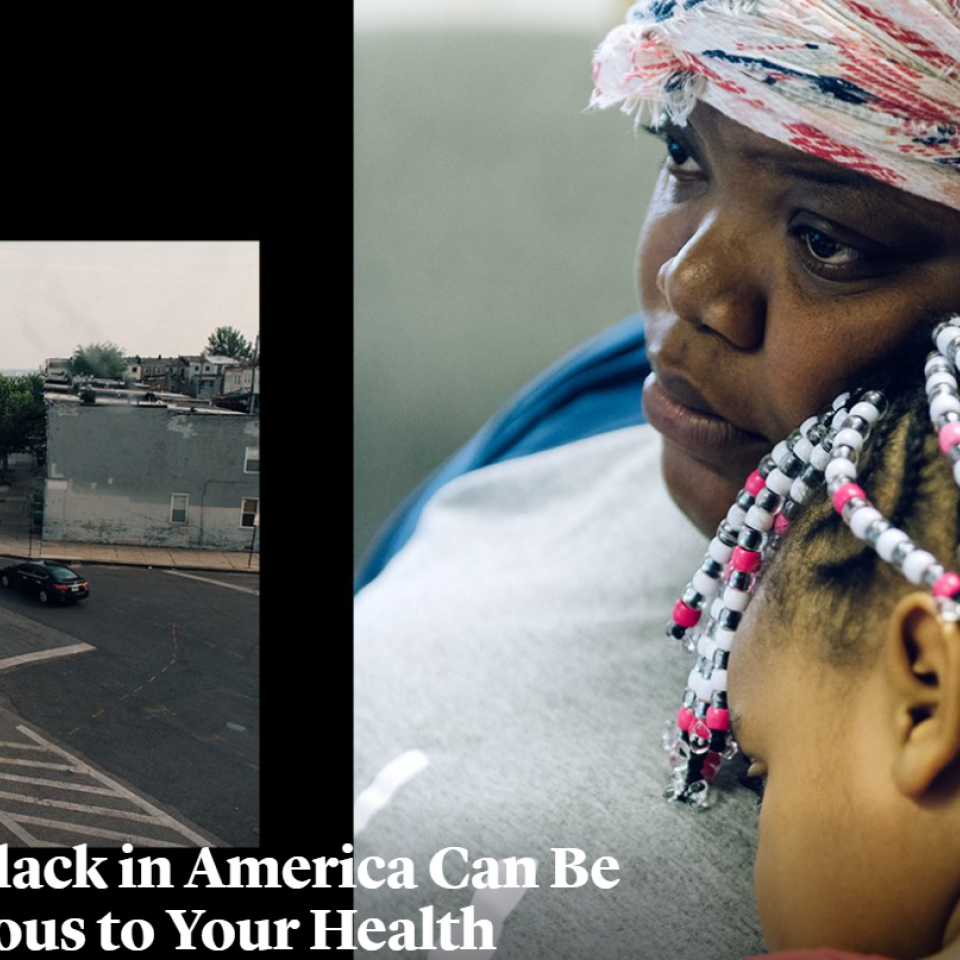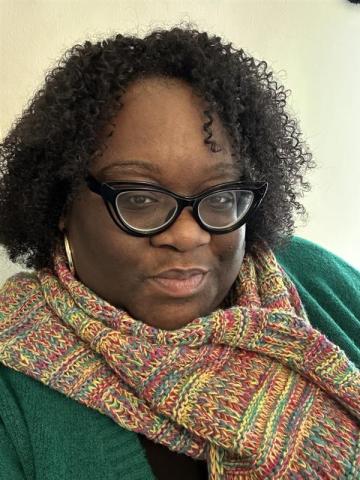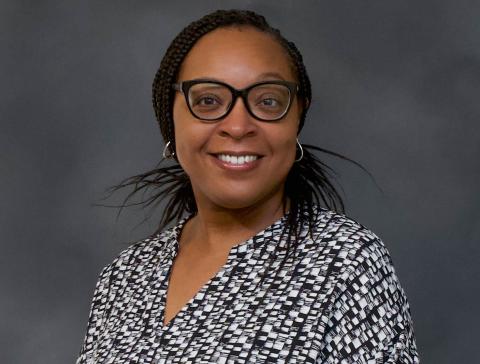
The Atlantic looks at health disparities in Baltimore
Former Health Care for the Homeless client Kiarra Boulware couldn’t seem to overcome the drugs and violence overwhelming Sandtown, where she grew up and where nearly half of all families live in poverty.
For a new story in The Atlantic, Being Black in America Can Be Hazardous to Your Health, journalist Olga Khazan spent over a year getting to know Kiarra and how neighborhoods shape people’s health outcomes.
Olga followed Kiarra throughout Baltimore—at home, work, and during her regular appointments at our West Baltimore clinic with Dr. Tyler Gray and Behavioral Health Therapist Ebony Hicks, both featured in the article.
At only 27 years old, Kiarra is suffering from diabetes, depression, and, formerly, substance use—like many people in her neighborhood.
“[Kiarra] blames herself for her poor health—as do many of the people I met in her community, where obesity, diabetes, and heart disease are ubiquitous,” Olga writes. “But these individual failings are only part of the picture.”
The other part of the picture is what we often refer to as “social determinants of health.” The idea that where people live affects how they live.
At Health Care for the Homeless, we’re working to identify those social determinants to understand and address them better.
“Social determinants are the areas of your life that impact your health before you reach your doctor’s office,” Director of Housing Services at Health Care for the Homeless Lawanda Williams explains. “Poverty, access to food and where you live are all examples. We know in Baltimore that the separation of two or three miles—like between Roland Park and Park Heights—can mean a 20-years difference in life expectancy.”
Following Olga’s story, The Atlantic pulled together advocates and health professionals in Baltimore, including a number of people from Health Care for the Homeless like Lawanda and President and CEO Kevin Lindamood, to discuss health disparities during a forum titled Healing the Divide: An Atlantic Forum on Health Equity.
Sitting with Kiarra during the forum was Steve Dixon, President and Chief Operating Officer of Penn North Recovery Center, where Kiarra was treated for substance use and more recently trained as a community health worker. According to Kiarra, it’s these types of comprehensive recovery programs that saved her life, and that more people need access to. And as Steve will point out, housing is big on the list, too.
“It’s a shame that you have this much homelessness in this beautiful city and you have all these abandoned buildings,” Steve says about the potential to turn existing buildings into affordable housing.
Watch video from the forum here.
Olga’s article will appear in The Atlantic’s print publication in July.
More Recent News
We are thrilled to welcome Nikia Woodard, our new Director of Human Resources! With more than two decades of experience in the HR field, Nikia previously held leadership roles with the Maryland Transit Administration, Unified Women’s Healthcare and a behavioral health residential treatment facility for youth in Baltimore. Most recently, she served as Director of Employee Experience & Organizational Development at Loyola University Maryland, implementing university-wide professional development programs and encouraging a culture of continuous learning. Read on to learn more about Nikia (and her favorite snack)…
After a year of serving as Practice Manager of West Baltimore, Alkema Jackson is moving into the new role of Director of Practice Operations, Community Sites! She joined Health Care for the Homeless in 2022 as the Client Access Project Coordinator, collaborating across departments to help more people connect to agency services, and in 2023, she received a Core Value Award for Hope. Read on to learn more about Alkema’s approach to this new position…
Meet Christana Greene, our new Director of Compliance! With more than five years in the compliance field—most recently as Senior Quality and Patient Safety Specialist at GBMC Healthcare—Chrissy brings frontline insight to the role. She began her career as a medical assistant, gaining firsthand experience in what it takes to keep care safe and operations running smoothly. In her new role, Chrissy is focused on building a compliance culture grounded in safety, integrity and accountability. Read on to learn more about Chrissy...
Baltimore gets dangerously cold, and too many of our neighbors are out there. Here are three simple things you can do to make a difference in someone’s life this winter.




